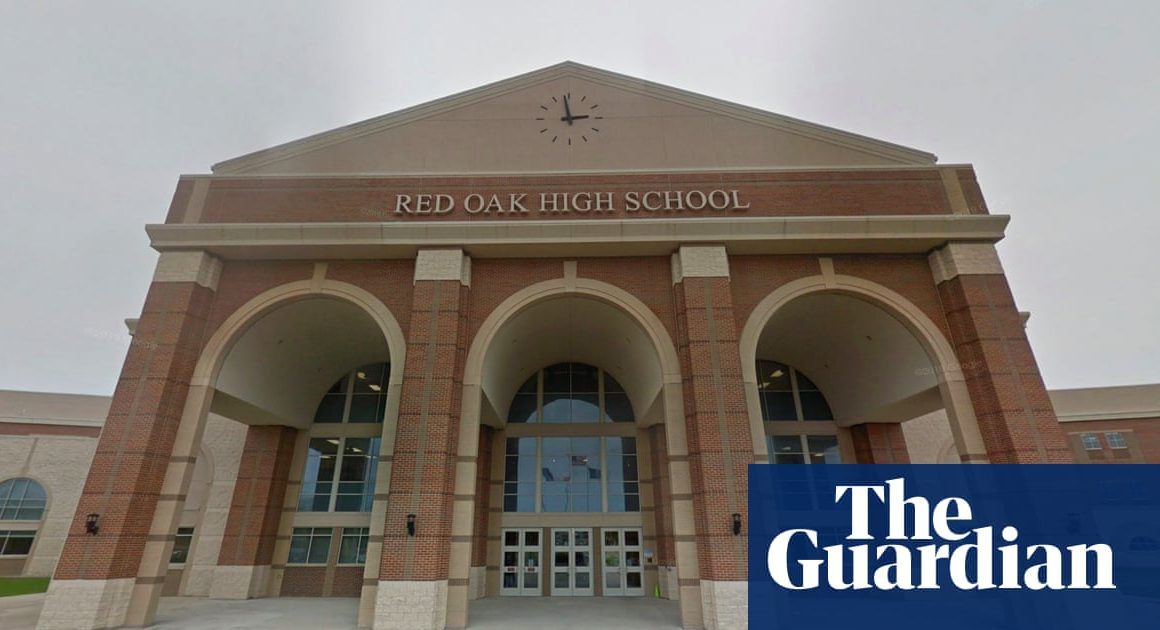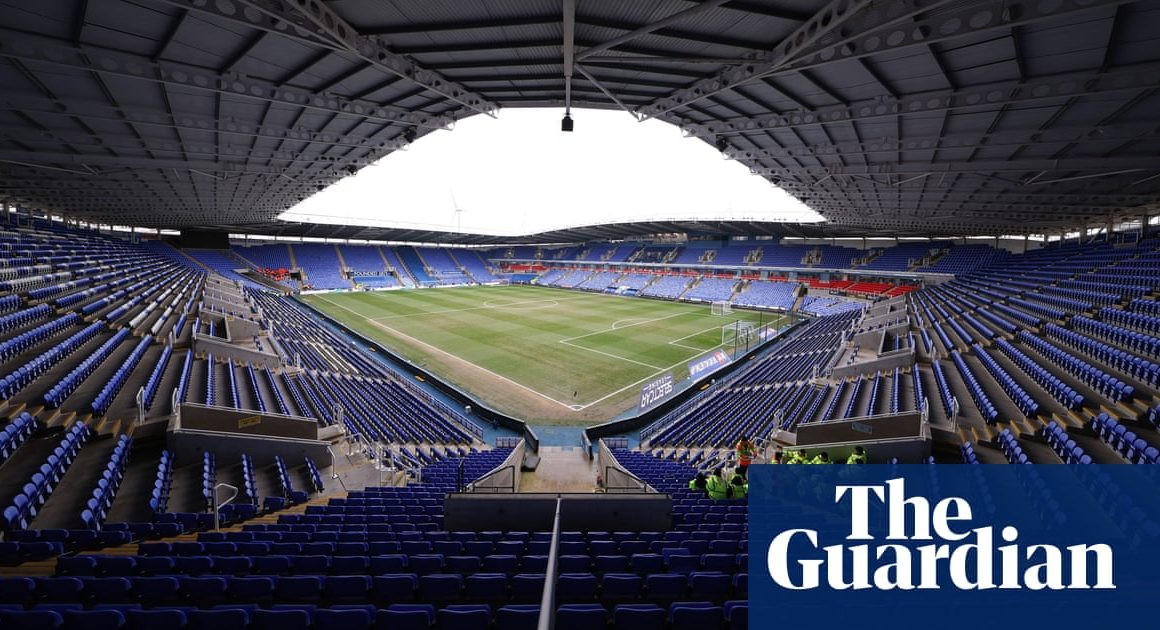Introduction: Bank of England widely expected to leave interest rates on hold today
Good morning, and welcome to our rolling coverage of business, the financial markets and the world economy.
Borrowers are unlikely to receive a pre-Christmas present from the Bank of England today.
The UK central bank is widely expected to leave interest rates on hold at noon, at its final meeting of 2024.
According to the money markets, there is barely 1% chance of a cut, and almost 99% certainty that we’ll get a ‘no change’ decision as the clocks strike 12.
That would leave UK interest rates at 4.75%.
Yesterday’s jump in inflation to 2.6%, above the Bank’s target, following a pick-up in wages on Tuesday, has crushed any lingering hopes of a rate cut this month, even though the economy also appear to be weakening.
The past week has seen “a troika of bad economic news for the UK”, says Kathleen Brooks, research director at XTB, who explains:
Firstly, GDP fell for October, secondly, wage growth shot higher and thirdly, inflation is also moving in the wrong direction. Annual headline inflation rose to 2.6% from 2.3% in November, which was mostly down to expected base effects. Service price inflation remained steady at 5% YoY; however, this is still far too high for the BOE to be comfortable with. Pay growth is another concern.
Private sector pay growth was 5.4% YoY in October, which suggests that the consumer could thwart the BOE’s efforts to bring inflation back to the 2% target rate.
The Bank’s decision comes a day after the Federal Reserve cut US interest rates, but also signalled it expected to lower borrowing costs at a slower rate in 2025.
The agenda
-
7am GMT: Water regulator Ofwat to announce how much water companies can increase prices in the next five years.
-
Noon GMT: Bank of England interest rate decision
-
1.30pm GMT: US jobless weekly claims data
Key events
Feargal Sharkey: Privatisation for the water industry has failed colossally

Jasper Jolly
Water campaigner Feargal Sharkey has called for the end to privatisation of the water industry in England and Wales, after the regulator announced a steep 36% bills increase over the next five years.
Sharkey, the former lead singer of the Undertones, said that the government should examine “another model” for ownership of the industry, such as mutualisation – when a company is owned by customers – or nationalisation.
He said:
“Privatisation for the water industry has failed colossally, to the tune of tens of billions of pounds.”
Sharkey, who became a thorn in the side of the industry after becoming disgusted at sewage discharges into rivers, was also heavily critical of Ofwat, the regulator, for allowing water companies to raise bills by more than a third, after initially proposing an increase of 21% in July. He said the decision to allow such steep bills increases amounted to misconduct, costing British billpayers billions of pounds.
He says:
“As much as this was judgment day for the water industry, it was judgment day for Ofwat. Both have failed miserably.
“Ofwat has proved it is utterly incapable. This is the point that we need to restructure the entire industry.”
Thames Water says it will tell customers how their bills will rise over the next five years by next February.
In a statement to the stock exchange, Thames Water says it will review Ofwat’s decision on bills “in detail” before responding.
It also says that Ofwat’s decision, and the £3bn liquidity lifeline agreed with creditors, means its liquidity would be extended to October 2025, “with the potential to extend further to May 2026 if the Company chooses to make an appeal to the CMA”.
Water companies are defying the selloff on the London stock market.
Shares in Severn Trent, which will raise bills by 47% over the next five years, have risen by 1% – making it a rare riser on the FTSE 100.
United Utilities’ shares are up 0.7%, after it was told it can raise bills by 32% by 2030.
London stock market hits one-month low after hawkish Fed
Stocks in London are tumbling at the start of trading, following Wall Street’s 3% slump last night.
The FTSE 100 index of blue-chip shares has dropped by 98 points, or 1.2%, in early trading to 8,099 points, its lowest level since 21 November.
Technology-investor Scottish Mortgage are the top faller, down 3.2%, followed by private equity group 3i (-3.1%), Barclays (-3%) and credit-score firm Experian (-3%).
City investors are disappointed that the US Federal Reserve now expects to make fewer interest rate cuts in 2025.
Preston Caldwell, chief US economist at Morningstar, says:
“The Fed is setting the stage for the possibility of few (or even zero)additional rate cuts in 2025 and 2026. Fed Chair Jerome Powell noted that the federal-funds rate is now “significantly closer to neutral”, although it likely remains still “meaningfully restrictive.
There is much uncertainty about precisely where the neutral rate is located. GDP growth has remained strong despite the Fed’s high interest rates. Inflation is also not quite back to target.
The Fed is virtually certain to slow the pace of rate cuts in 2025, in order to better gauge the effects of monetary policy in real time.”
Tom MacInnes, director of policy at Citizens Advice, has warned that the water bill increases will “hit many households hard”.
MacInnes says:
“While it’s encouraging to see help for customers increasing, the current dysfunctional approach to bill support in this industry means that people will continue to miss out.
“Ending the postcode lottery for water social tariffs – cheaper rates for those who need them – is an essential step to shield those struggling to keep pace with rising bills.
“We found that more than two-fifths (42%) of those likely to be eligible aren’t aware that water social tariffs exist.
“The Government and suppliers must work together to ensure that no one is missing out on the support they’re entitled to.”
UK water bill hike: it’s the “nightmare before Christmas”
Reaction to this morning’s decision to hike average water bills by 36% over the next five years is flooding in, and pressure groups are not impressed.
Giles Bristow, chief executive of Surfers Against Sewage, a campaign group, says:
Ofwat and the government are asking the public to throw good money after bad and pump yet more of their hard-earned cash into a system geared towards making profit for industry. The obscene reality is that a third of every pound a customer pays is lost to industry debt and dividends, and not to cleaning up our rivers, lakes and seas. This is truly the nightmare before Christmas for a cash-strapped public and signs that even under a new government, the sewage scandal rumbles on. No wonder some brave billpayers are taking a stand and refusing to pay into this failed system.
We’re under no illusions that the water system needs urgent investment but Ofwat doing the same thing and expecting different results is sheer insanity.
Those who claim today as a day of great ambition and record investment are either blind or wilfully ignorant. Today is a day where the status quo continues and the vicious cycle of profit from pollution is perpetuated by government and its regulators. Nothing less than radical reform will do. It’s time for the government to put its money where its mouth is and end the model of profit from pollution. Only then will trust be regained and the public’s demand for an end to sewage pollution be realised.
Charles Watson, chair and founder of River Action, another campaign group, said:
It is a travesty that customers are now being forced to pay higher water bills, especially when these increases are directly the result of years of under-investment by the water industry.
Shareholders in the water companies must be laughing all the way to the bank. With customers now being forced to foot the bill to repair and upgrade the water industry’s crumbling infrastructure, the very people who have already benefited for years from huge dividend payments, will see the value of their assets increase in thanks to this customer funded investment.
The real question remains staring us unanswered in the face: when will those who have profited so rapaciously from decades of operational neglect, causing horrendous environment damage in the process, finally be held accountable and made to pay up for their totally irresponsible custodianship of these essential public services?
Harland & Wolff expected to be saved by Spain’s Navantia
Spain’s state-owned shipbuilder Navantia is expected to confirm later today that it is buying Harland and Wolff, the Belfast shipyard best known for the Titanic, in a rescue deal.
The future of Harland and Wolff has been hanging in the balance since September, when it collapsed in to administration.
According to the BBC, all jobs at the firm are expected to be saved in the deal, which is also thought to include Harland and Wolff’s facilities in Scotland and England.
Bloomberg reports that the UK government will provide aid to get the rescue agreed, having been initially reluctant.
Environment Secretary Steve Reed has blamed the 14 years of Conservative government for the state of the water industry.
Speaking after Ofwat announced bills would increase on average by more than a third over the next five years, Reed says:
“Under the Conservatives, our sewage system crumbled. They irresponsibly let water companies divert customers’ money to line the pockets of their bosses and shareholders.
The public are right to be angry after they have been left to pay the price of Conservative failure.
This Labour Government will ringfence money earmarked for investment so it can never be diverted for bonuses and shareholder payouts. We will clean up our rivers, lakes and seas for good.”
Thames Water fined £18.2m for shareholder payouts
Thames Water has been fined £18.2m for paying “unjustified” dividends to shareholders.
Ofwat has ruled that Thames breached its licence obligations by paying £37.5m of interim dividend payments in October 2023, and a further £158.3m in March 2024.
Ofwat’s chief executive David Black says:
“Ofwat’s £18 million penalty and clawing back the value of £131 million in unjustified dividend payments is a clear warning to the whole sector: We will take action against companies who take money out of these businesses, where performance does not merit it.”
This is the first time that Ofwat has used new powers to penalise water companies that don’t link dividend payments to performance.
How much will your water bill rise by?
Customers at Southern Water will face the highest increase in bills by 2030, with a 53% increase inked in over the next five years.
That may infuriate the tens of thousands of households in the Hampshire region who can’t get any water at all following a fault at a supply works.
Thames Water customers face a 35% increase – as the Guardian reported last night.
But SES Water, which serves the east Surrey, West Sussex, west Kent and south London areas, must trim bills by 3% by 2030.
These tables show the final decision from Ofwat, compared to the increases proposed by the water industry:
Ofwat: Water companies must improve culture and performance
Today is a “significant moment” for the water industry, says David Black, Ofwat chief executive.
Black explains that water companies must also clean up their act, as well as the H2O supply:
It provides water companies with an opportunity to regain customers’ trust by using this £104bn upgrade to turn around their environmental record and improve services to customers.
“Water companies now need to rise to this challenge, customers will rightly expect them to show they can deliver significant improvement over time to justify the increase in bills. Alongside the step up in investment, we need to see a transformation in companies’ culture and performance. We will monitor and hold companies to account on their investment programmes and improvements.
But, a 36% hike in energy bills will be a significant blow to struggling households, of course.
And Black acknowledges this, saying:
“We recognise it is a difficult time for many, and we are acutely aware of the impact that bill increases will have for some customers. That is why it is vital that companies are stepping up their support for customers who struggle to pay.
He also says Ofwat has stripped out billions of pounds of “unjustified costs” from the industry when drawing up its final decision on bills:
“We have robustly examined all funding requests to make sure they provide value for money and deliver real improvements, while ensuring the sector can attract the levels of investment it needs to meet environmental requirements.
This has seen us remove £8bn of unjustified costs compared with companies most recent requests. In addition, our approach to setting a rate of return has saved customers £2.8bn.”
Ofwat approves £104bn upgrade – the details
Ofwat says the “£104bn upgrade” funded by a 36% increase to household energy bills will fund a range of projects to improve, and clean up, the water service.
This will include:
-
£12bn on 2,884 projects reducing spills from storm overflows;
-
£6 billion of upgrades to combat nutrient pollution for around 1,000 sites and catchments;
-
£3.3bn on nature-based solutions and increasing biodiversity;
-
£2bn of development funding to unlock £50bn investment for 30 major projects designed to secure water supplies including nine new reservoirs and nine large-scale water transfer schemes;
-
£456m of extra funding on day-to-day allowances to increase the rate at which water mains are replaced, with 8,445km set to be improved over the next five years.
Water bills to rise by 36%
Newsflash: household water bills in England and Wales are to rise by 36%, on top of inflation, over the next five years.
Water regulator Ofwat has announced that this will mean an average increase of £31 per year, taking average annual bills to £597.
This is below the 44%, or £39 per year increase, requested by companies in August, but higher than Ofwat’s original proposal of a £19/year increase.
Under the plan, the average bill increase in 2025-26 will be £86 (20%), excluding inflation, with smaller percentage increases in each of the next four years.
Ofwat says the money will fund a £104bn upgrade to the UK’s water intrastructure, to clean up rivers and seas and secure long-term drinking water supplies for customers.
Bitcoin falls after Powell sounds cool about strategic reserve
Bitcoin took a lurch lower overnight, after Fed chair Jerome Powell said the US central bank has no desire to be involved in any government effort to stockpile large amounts of bitcoin.
Asked about the possibility that the US could create a strategic bitcoin reserve, Powell said:
“We’re not allowed to own bitcoin.”
In terms of the legal issues around holding bitcoin, Powell added:
“That’s the kind of thing for Congress to consider, but we are not looking for a law change at the Fed.”
This knocked bitcoin as low as $98,700 early this morning, down from $106,400 yesterday. It’s now risen back to $101,200.
Bitcoin fell 4% after the US Federal Reserve cut its key interest rate .
The rate cut announcement was accompanied by comments from Fed Chairman Jerome Powell regarding Bitcoin, which caused it to fall.
“We are not allowed to own Bitcoin, and we are not seeking to change the… pic.twitter.com/62B1GASUvp
— Australian National Review (@ANRHeadlines) December 19, 2024
Wall Street falls sharply as Fed indicates fewer rate cuts in 2025
Wall Street was rattled yesterday by a suprisingly hawkish message from the US Federal Reserve, alongside a cut to interest rates.
The S&P 500 share index tumbled almost 3%, after Fed policymakers raised their inflation estimates for next year and cut their own forecasts for rate cuts in 2025.
Fed chair Jerome Powell told reporters he remained optimistic about the US economy, saying:
“I think it’s pretty clear we have avoided a recession. I think growth this year has been solid.
“The US economy has been remarkable.”

Anna Isaac
Troubled Thames Water will be allowed to increase customer bills by just over a third by 2030 after a decision by the industry regulator, the Guardian has learned.
Ofwat is poised to announce that the heavily indebted company, which serves 16 million consumers in London and the Thames Valley area, will be permitted to raise bills by just over half the level the company had demanded.
Ofwat would allow Thames to raise bills by more than 33% over the next five years, far less than the 59% the company had requested, sources said.
The decision does, however, represent a softening in stance from Ofwat which had said in July that its preliminary view would be to allow Thames to increase bills by 22%, equivalent to a £99 increase in the average bill to £535 by 2030.
Here’s the full story:
Ofwat to set size of water bill increase
Households in England and Wales are about to learn how sharply bills will rise over the next five years.
Water regulator Ofwat is expected to announce on Thursday that charges will increase by more than 20% over the next five years, to give utility companies the financial firepower to fix the pollution and water-shortage crisis hitting the UK.
Back in July, Ofwat issued a draft decision that water companies could increase bills by an average of 21%, on top of inflation, over the next five years. That would equate to an average £94 increase by 2030, to £535 a year.
But some water companies had subsequently asked to increase bills by an average of 40%, which would push average bills to £615 a year by 2030.
Introduction: Bank of England widely expected to leave interest rates on hold today
Good morning, and welcome to our rolling coverage of business, the financial markets and the world economy.
Borrowers are unlikely to receive a pre-Christmas present from the Bank of England today.
The UK central bank is widely expected to leave interest rates on hold at noon, at its final meeting of 2024.
According to the money markets, there is barely 1% chance of a cut, and almost 99% certainty that we’ll get a ‘no change’ decision as the clocks strike 12.
That would leave UK interest rates at 4.75%.
Yesterday’s jump in inflation to 2.6%, above the Bank’s target, following a pick-up in wages on Tuesday, has crushed any lingering hopes of a rate cut this month, even though the economy also appear to be weakening.
The past week has seen “a troika of bad economic news for the UK”, says Kathleen Brooks, research director at XTB, who explains:
Firstly, GDP fell for October, secondly, wage growth shot higher and thirdly, inflation is also moving in the wrong direction. Annual headline inflation rose to 2.6% from 2.3% in November, which was mostly down to expected base effects. Service price inflation remained steady at 5% YoY; however, this is still far too high for the BOE to be comfortable with. Pay growth is another concern.
Private sector pay growth was 5.4% YoY in October, which suggests that the consumer could thwart the BOE’s efforts to bring inflation back to the 2% target rate.
The Bank’s decision comes a day after the Federal Reserve cut US interest rates, but also signalled it expected to lower borrowing costs at a slower rate in 2025.
The agenda
-
7am GMT: Water regulator Ofwat to announce how much water companies can increase prices in the next five years.
-
Noon GMT: Bank of England interest rate decision
-
1.30pm GMT: US jobless weekly claims data












